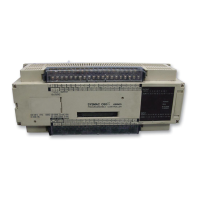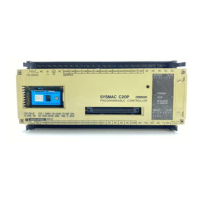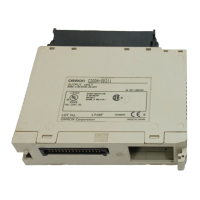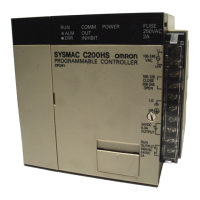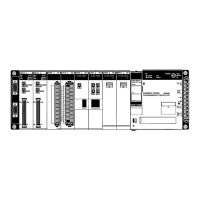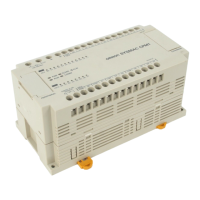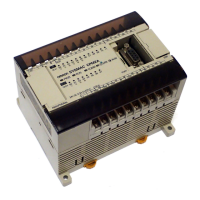5Application Precautions
xiv
• Do not apply voltages to the Input Units in excess of the rated input voltage.
Excess voltages may result in burning.
• Do not apply voltages or connect loads to the Output Units in excess of the
maximum
switching capacity
. Excess voltages or loads may result in
burning.
• Disconnect
the functional ground terminal when
performing withstand voltage
tests.
Not disconnecting the functional ground terminal may result in burning.
• Be sure that all the mounting screws, terminal screws, and cable connector
screws
are tightened to the torque specified in the
relevant manuals. Incorrect
tightening torque may result in malfunction.
• Leave
the label attached to
the Unit when wiring. Removing the label may re
-
sult in malfunction if foreign matter enters the Unit.
• Remove
the label after the completion of wiring to ensure proper heat dissipa
-
tion. Leaving the label attached may result in malfunction.
• Use
crimp terminals for wiring. Do not connect bare stranded wires directly to
terminals. Connection of bare stranded wires may result in burning.
• Wire all connections correctly.
• Double-check
all wiring and switch settings before turning ON the power sup
-
ply. Incorrect wiring may result in burning.
• Be
sure that the terminal blocks, Memory
Units, expansion cables, and other
items with locking devices are properly locked into place. Improper locking
may result in malfunction.
• Check
the user program for proper execution before actually running it on the
Unit. Not checking the program may result in an unexpected operation.
• Confirm
that no adverse ef
fect will occur in the system before attempting any of
the following. Not doing so may result in an unexpected operation.
• Changing the operating mode of the PC.
• Force-setting/force-resetting any bit in memory.
• Changing the present value of any word or any set value in memory.
• Resume
operation only after transferring to the new CPU Unit the contents of
the DM Area, HR Area, and other data required for resuming operation. Not
doing so may result in an unexpected operation.
• Do
not pull on the cables or bend the cables beyond their natural limit.
Doing
either of these may break the cables.
• Do
not place objects on top of the cables or other wiring lines. Doing so may
break the cables.
• When
replacing parts, be sure to confirm that the
rating of a new part is correct.
Not doing so may result in malfunction or burning.
• Before
touching a Unit, be sure to first touch a
grounded metallic object in order
to
discharge any
static built-up. Not doing so may result in malfunction or dam
-
age.
• Install the Units properly as specified in the operation manuals. Improper
installation of the Units may result in malfunction.

